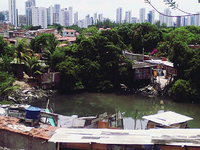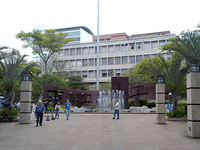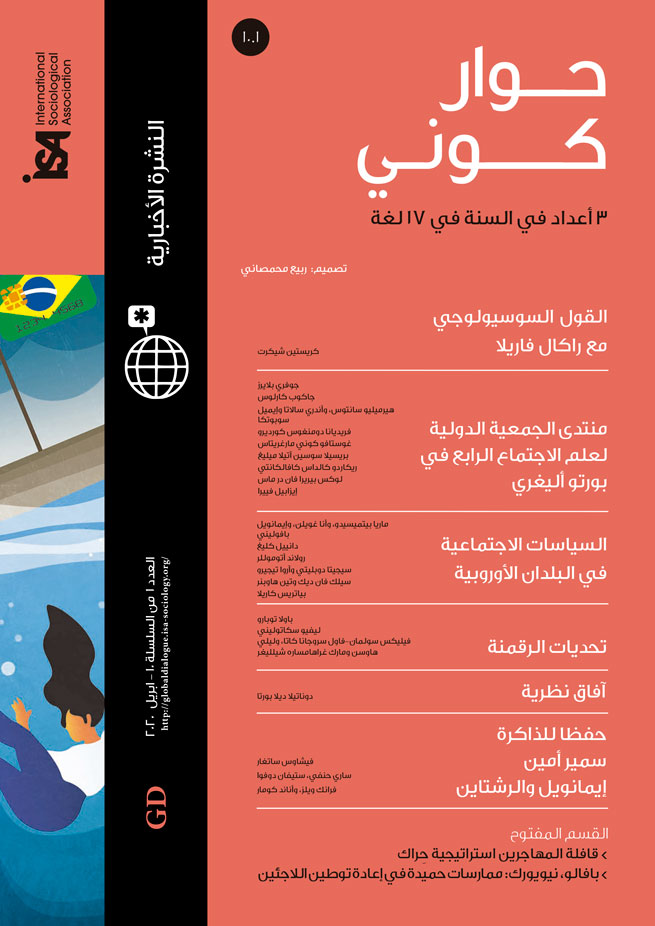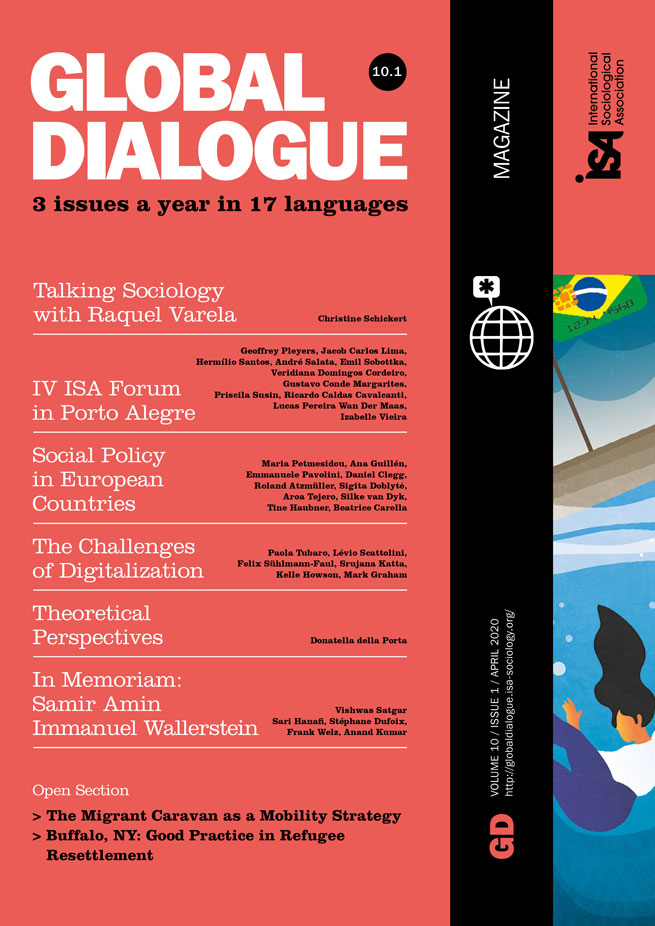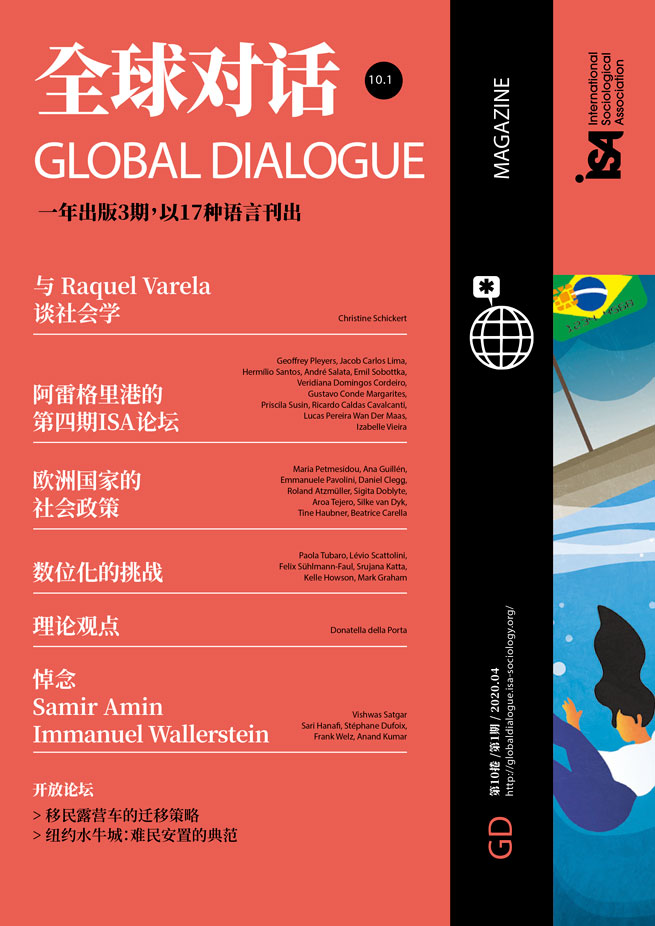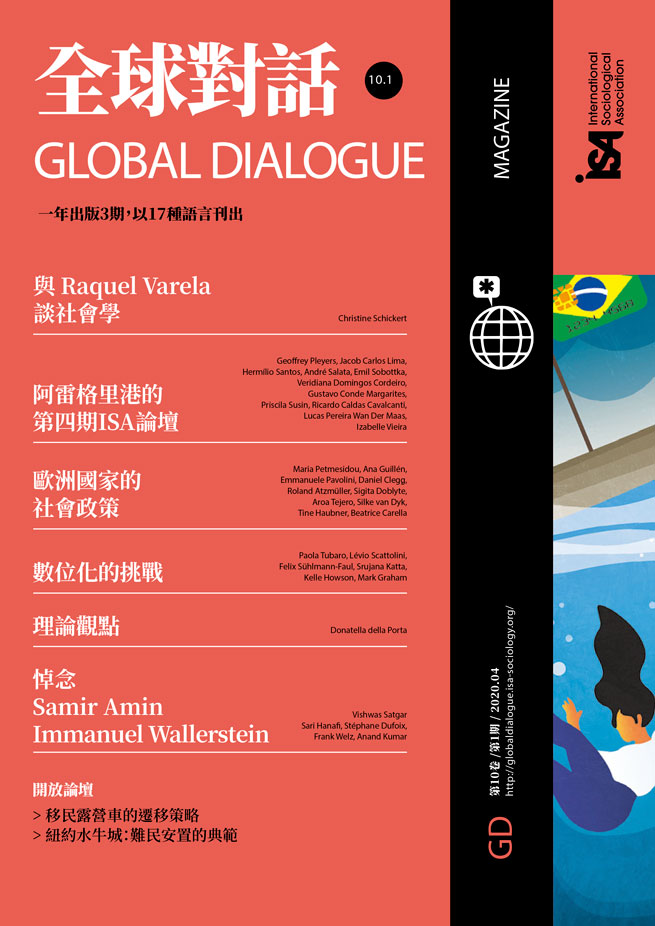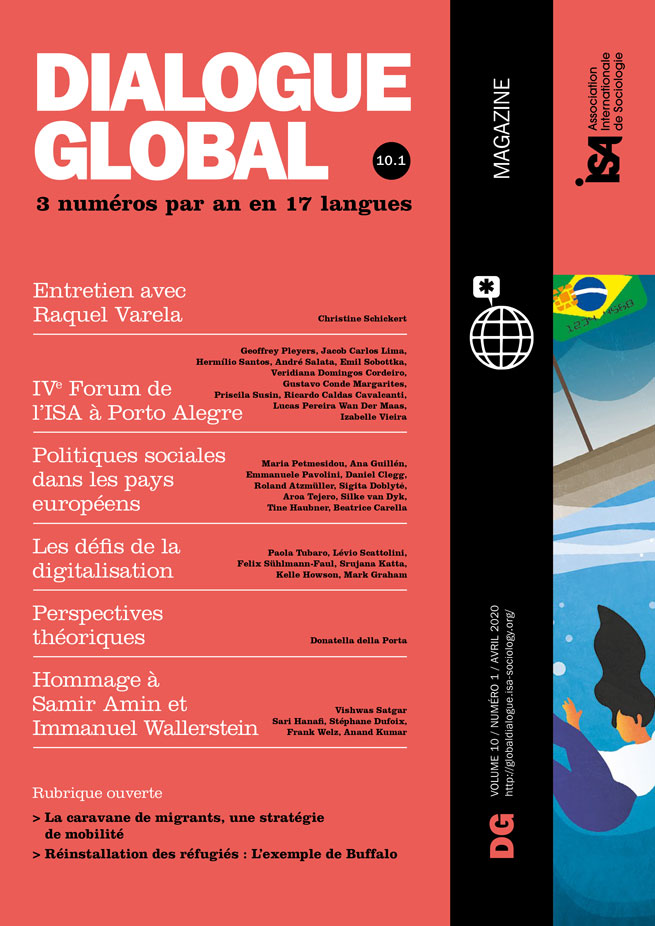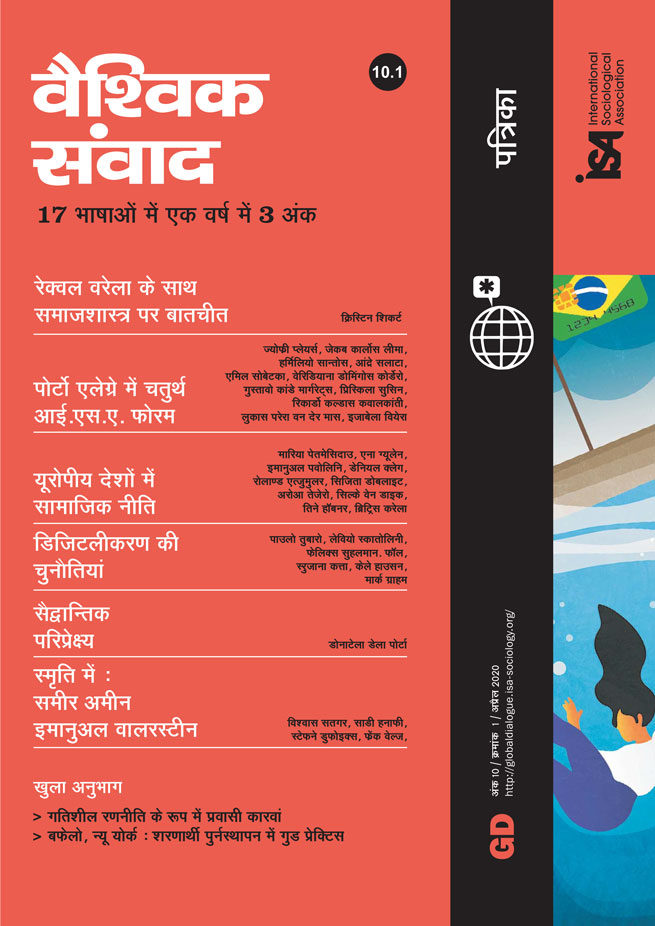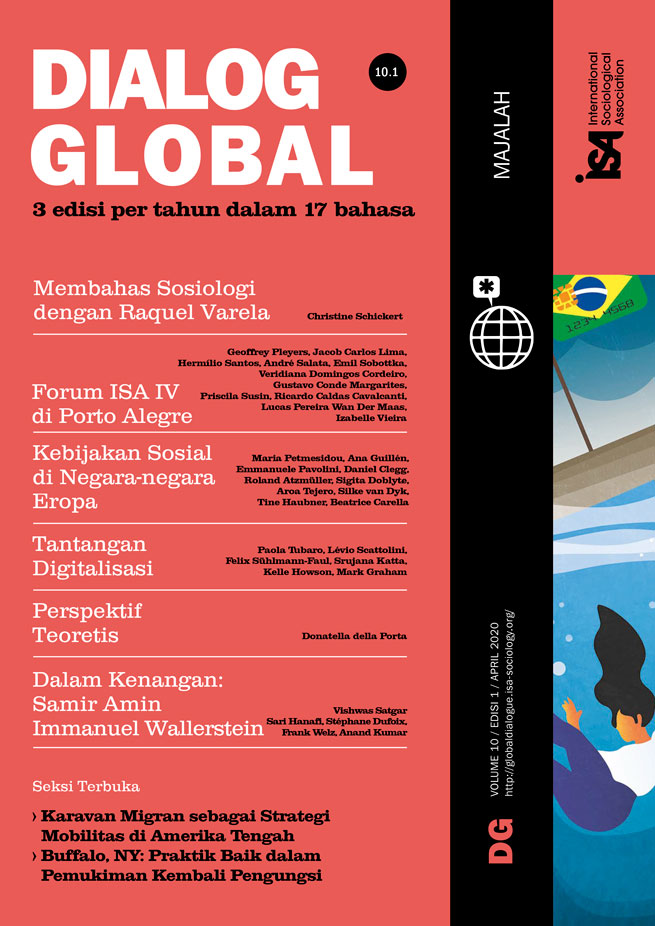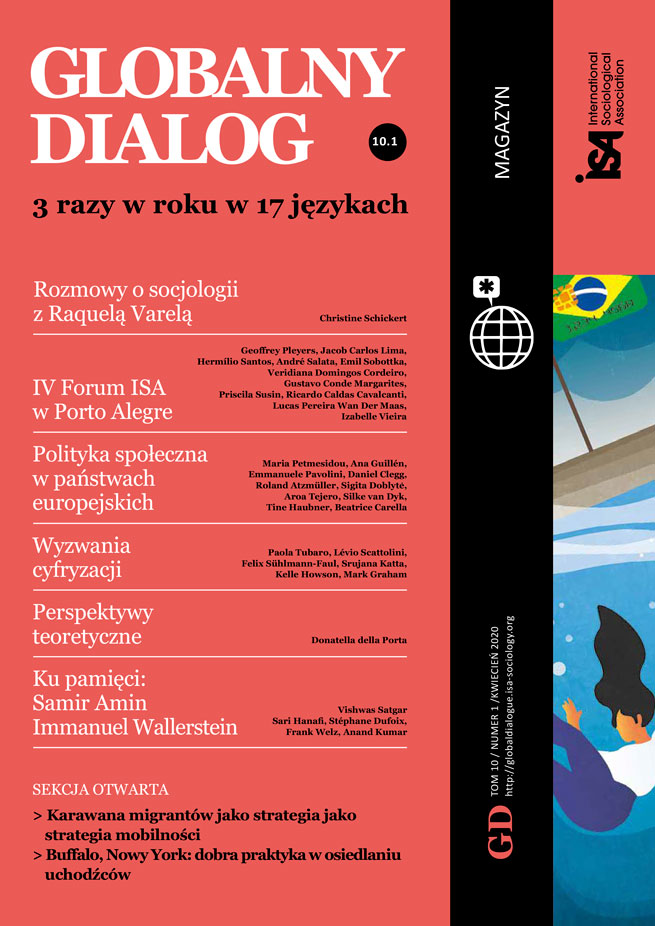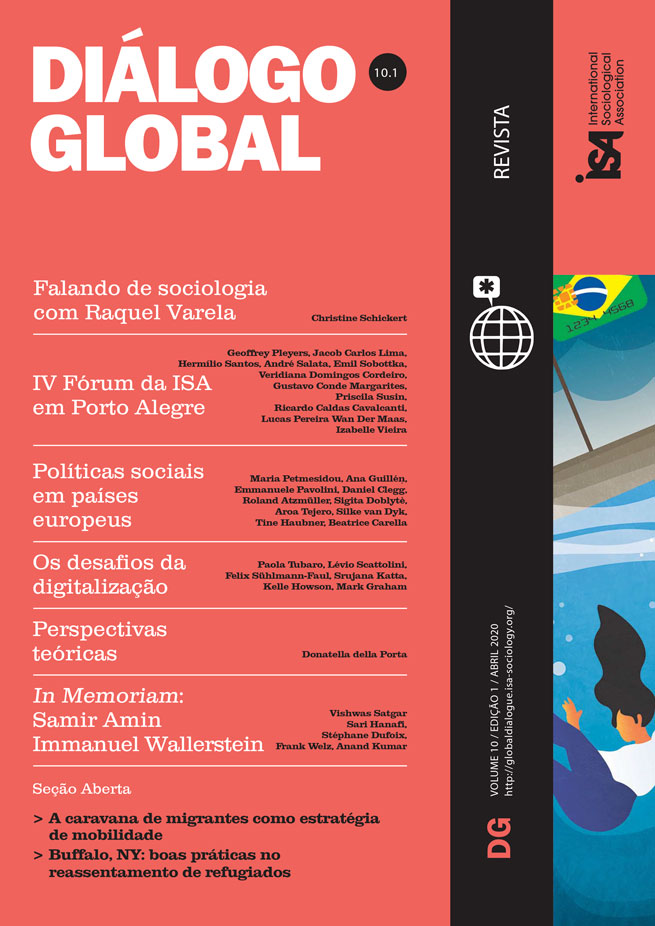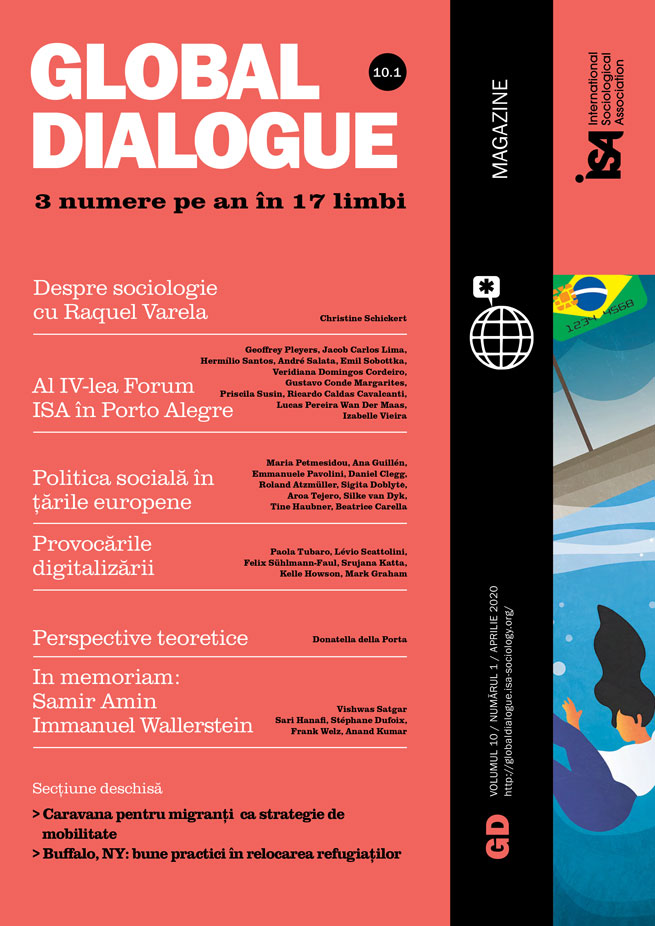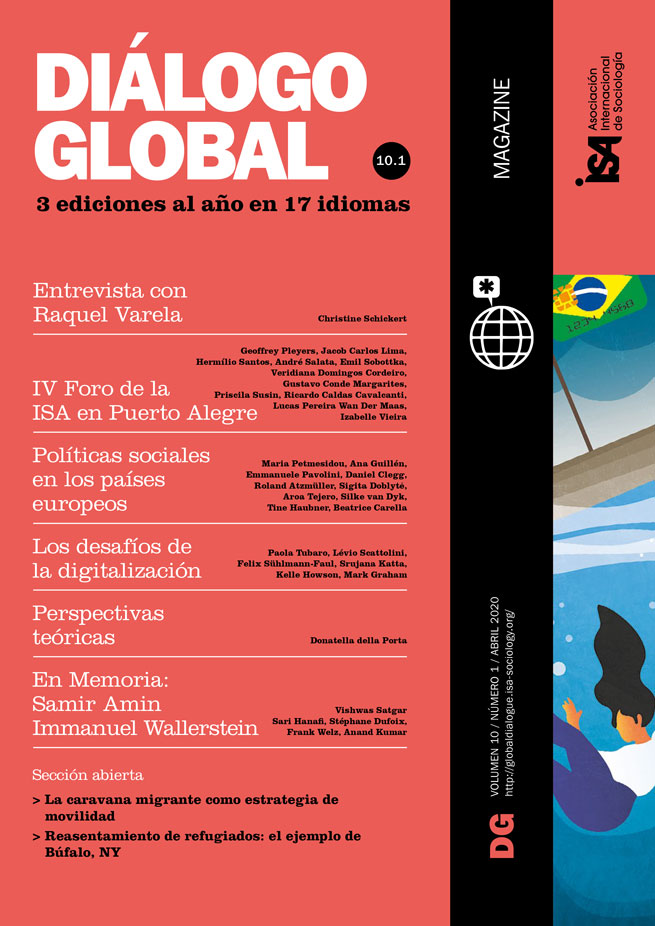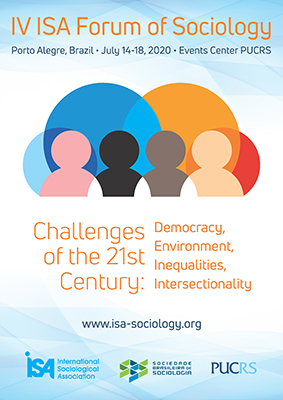In January 2001, 20,000 activists and public intellectuals from all continents gathered in Porto Alegre for the first World Social Forum. They were united by the hope that the 21st century would be more democratic and that international solidarity and global struggles could shape globalization toward a fairer and more equal world.
Almost two decades later, in July 2020, 5,000 social scientists from all continents will take part in the ISA Forum of Sociology in the same city to analyze social transformations, and share their research and perspectives on four main challenges of our century and how the social sciences may contribute to dealing with them. The context and general mood will be quite different this time, as the optimism of the millennium has faded and the challenges we face for living together on a limited planet are even more urgent.
Four challenges have become increasingly salient in these two decades, and particularly in the last five years: democracy, the environmental crisis, inequalities, and intersectionality.
At the turn of the millennium, the expansion and the deepening of democracy was taken for granted. The color revolutions and the 2011 Arab Spring were analyzed as the “fourth wave of democratization.” However, while the 2010s opened with an unprecedented spread of movements for democracy in all continents, it ended up with the spread of illiberal leaders who threaten democracy, the environment, tolerance, and economic and gender equality. Meanwhile, hopes for a more democratic global governance able to tackle global issues such as climate change, migration, and rising inequalities have faded. It has now become clear that to face global challenges, democracy needs to be re-invented within and beyond the representative system.
The decade has also been shaped by a widening gap between the super-rich and the rest of the population, with rising rates of poverty in so-called “developed” countries, both those that have experienced one of their longest periods of economic growth (notably the USA and Germany) and those whose economy and welfare state have been devastated by austerity plans. In the second half of the decade, two issues once more became major concerns: the environmental disaster, and gender violence and racism. While women from the Global South are at the forefront to defend democracy and denounce the patriarchal dimensions of oppression, feminist mobilizations such as the March 8 strikes, #NiUnaMenos, and the #MeToo campaign have put the spotlight on sexual harassment and femicides in global news headlines as much as in daily life and university campuses. In the meanwhile, teenagers’ school strikes have made climate change and environmental damage major global concerns. They push an integral vision of ecology that is deeply inspired by movements of the Global South and require a systemic change. The latest Intergovernmental Panel on Climate Change (IPCC) report shows frightening figures for climate change in the 21st century while a mass species extinction is underway.
Interconnected challenges
What social movements and social sciences have taught us in the first two decades of this century is how deeply intertwined these four challenges are. The increasing connections between democracy, the environmental crisis, inequalities, and intersectionality oblige us to revisit and reconceptualize each of these concepts with interconnectedness as the starting point.
For instance, taking into account the environmental crisis, inequalities, and intersectionality leads us to rethink democracy in a different way. On the one hand,democracy is threatened in an increasing number of countries by illiberal leaders who deconstruct its fundamental values of human rights, diversity, and equal respect for all citizens, while supporting an accelerated destruction of the environment by transnational companies, and strengthening patriarchy, racism, and inequalities. On the other, progressive movements also challenge institutional democracy as they require both deep political, cultural, and social change and action at levels for which our democratic system centered on the nation-state is not best equipped: the global scale to tackle global warming and environmental devastation; intimacy and daily life in a patriarchal culture to tackle sexual abuse and femicides.
The rise of inequalities is a major threat both to democracy and the environment. The level of global inequalities is such that the “top 1%” and global corporations have major political power at the national and global scale. Far from Michael Walzer’s democratic ideal of the “separation of the spheres,” the last decade has seen the rise of billionaires to the presidency in a number of countries, while collusion between political and economic elites and the dominant power of lobbies have become a core feature of many contemporary political regimes.
Together with the climate justice movement, sociologists have shown us that climate change and the devastation of nature are fundamentally a social issue and that they cannot be limited without a deep change in society. The causes lie in the current global capitalist system and its increasing voracity for natural resources. While the Earth is our common home, we have very different responsibilities in the environmental disaster. Oxfam calculated that the average footprint of the richest 1% of people globally is 175 times that of the poorest 10%. The intersectional approach and the environmental justice movement show us that while women, minorities, and the less well-off contribute less to the devastation of the planet, they pay a much higher price for it, with significant losses in life expectancy and the rise of climate refugees.
Overcoming the lasting and interconnected economic, racial, colonial, and gender discriminations and the violence that perpetuates them is another major challenge of our time. Black feminist activists, indigenous movements, and social scientists have shed new light on the interconnected nature of race, class, and gender that create overlapping and interdependent systems of discrimination or disadvantage. The intersectional perspective leads to revisiting the democratic challenge, inequalities, and environmental justice. The current representative democracy system has shown its limits in dealing with racism and patriarchal oppression. Inequalities are deeply connected to gender and racist discriminations, and so are sufferings caused by environmental disasters and global warming. The increasing consciousness of intersectionality is both a result and a trigger of the rise of subaltern actors and movements. Indigenous communities, minorities, feminists, and small farmers have resisted injustice by combining practices, social struggles, and alternative worldviews.
Gender has long been considered as a side issue by progressive actors who focused on social policy and economic growth. It is today at the core of the battle for global democracy. In 2020, women of color and of minority backgrounds are the first victims of illiberal and authoritarian regimes. They are also at the forefront of the defense and reinvention of democracy in the 21st century. They pave the way for a world where inter-subjective relationships, compassion, solidarity, and care (for oneself, for other humans, and for nature) reshape our experience and our understanding of living together on a limited planet.
It would however be misleading to associate all oppressed actors with a renewal of ecology. While feminist and indigenous movements are at the forefront of the ecological battle, the studies by Arlie Hochschild among victims of environmental disasters in Louisiana show how such victims may also become the political bases for a renewal of reactionary and racist stances that pose a direct threat to our democratic system and the environment. It reminds us of the deep connection between the way environmental challenges will be tackled and the future of our democracies.
Connecting these four challenges tells us how deeply they are rooted in power relations, in our social structure, as well as in our modern culture, subjectivities, worldviews, and social sciences. It has become clear that there is no way to deal with them as separate challenges, sectorial demands, or isolated research fields. There is no way to solve one of them without tackling the other three. Together they draw the coordinates of what Latin American scholars have called a “civilizational crisis.”
The 2020 ISA Forum: An opportunity to share analyses
The 2020 ISA Forum will be an opportunity to share our analyses on these four global challenges and on their interconnections. It is also an invitation to discuss the epistemological questions they raise, our relations with the actors who confront these challenges, and the contributions of sociology in tackling them. How has our discipline been transformed by these challenges and by the actors that have surged from them? How does taking into account actors as producers of knowledge invite us to adopt new epistemologies? How can innovative sociological analyses contribute to grasping and dealing with our common challenges in the Global Age? What are the main obstacles we face in tackling these problems? How have the concepts of democracy, ecology, inequalities, and intersectionality been revisited based on recent experiences, actors, and challenges? How have they become the major frontlines of the battlegrounds between reactionary and progressive actors of the 21st century?
Two decades into the century, hard sciences and social sciences show us that we are at a crossroad for most of these challenges. The way humanity collectively tackles these challenges in the next decade will shape the lives of human beings for the rest of the 21st century.
Geoffrey Pleyers, Catholic University of Louvain, Belgium, President of the IV ISA Forum of Sociology and ISA Vice-President for Research (2018-22), past-president of ISA Research Committee on Social Classes and Social Movements (RC47), and member of ISA Research Committees on Sociology of Religion (RC22), Sociology of Youth (RC34), and Social Movements, Collective Action and Social Change (RC48) <Geoffrey.Pleyers@uclouvain.be>


